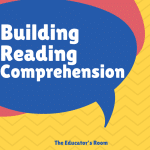I am passing out Brave New World to the 10th graders.
“Is there an audiobook for this?” a student asks.
“Why not just read the book?” I respond.
“I can’t read this without help,” explains the student.
“I’ll see,” I sigh.
I admit that in the past I had been a little frustrated at these requests. I felt as though the students were sometimes “cheating” at reading. I felt they were not technically “reading”, the complex cognitive process of decoding symbols in order to construct or derive meaning. They were “listening”, where they make an effort to hear or to heed something. However, I have become slowly converted in the use of audio texts for difficult texts because I have seen how effective they are as a resource in my classrooms.
The reason for considering the use of an audio text is what I call the problem of “voice.” What students may be telling me when they say they need help is that they do not hear the voice of an author (narrator) or the voice of a character while reading a text. A good reader can hear voices as he or she reads, but the struggling reader may need an audio text to provide that voice.
The use of audiotexts in our English/language arts classrooms has been gradual as we build up our resources. There are a limited number hard copies of required texts in the school library, so we look for resources available on the web. The use of the audiotext in whole class reads has been particularly effective with short passages, poems or plays. For example, there is an excellent audio version of The Adventures of Huckleberry Finn available for free on the site Loud Lit.org. The narrator is particularly good with the voices of Jim and Huck, (hear Ch. 2) and the site provides the page by page text as a “read-along.” The problems of Twain’s use of dialect are minimized once the students can hear the language. Equally good on this site is the audio-text for Jack London’s “To Build a Fire” which we have used in a 9th-grade short story unit.
Additionally, YouTube provides a multitude of poetry readings from T.S. Eliot reading his The Love Song of J. Alfred Prufrock to animated versions of Billy Collin’s poems “The Dead” and “Forgetfulness.”
However, I still wondered, was I educationally sound in incorporating these audiotexts in the classroom? (pun intended)
The question of audio text vs. written text has been studied for the past 40 years as audiotexts have grown in accessibility and popularity. In 1977, Walter Kintsch and Ely Kozminsky conducted an experiment where “48 college students either listened to or read 3 tape-recorded stories, each about 2,000 words in length. Immediately after processing each story, students wrote a summary in 60–80 words. A comparison of the summaries written after reading with those written after listening revealed only minor differences.”
More recently, a study conducted in 2003 in six high schools in the Northeast posed the question, “Does the use of audio texts with and without a comprehension strategy enhance the content acquisition for high school students with mild cognitive disabilities enrolled in US government classes in self-contained settings?” They used audio textbooks and a reading comprehension strategy (SLiCK) and concluded that “that audio textbooks can be an effective tool to for increasing content acquisition for secondary students with mild disabilities.” The original hypothesis that the experimental group with the added intervention of SLiCK would outperform the audiobook and control group, was not proved since there was no significant difference between the two experimental groups. Instead, the findings suggest “that the use of audiobooks for students with mild disabilities can improve content acquisition and increase understanding of content on students’ grade level and student independence with reading assignments.” The study was featured in an article (9/12/11) in Forbes by Olga Khazan titled, Is Listening to Audio Books Really the Same as Reading? Khazan suggested that the findings demonstrating the improvement in comprehension need not be limited to students with mild disabilities.
Apparently, how students receive information is not as different as one might think. University of Virginia psychology professor Dan Willingham, was also featured in the Forbes article saying, “There isn’t much individual variance in the way people absorb information.The way this is interpreted is that once you are good at decoding letters into sound, which most of us are by the time we’re in 5th or 6th grade, the comprehension is the same whether it’s spoken or written.”
While the physical text can be helpful for a student to re-read or annotate, the audiotext can help with the prosody or musicality of words. With a good audiotext, “Someone who knows the meaning can convey a lot through prosody,” Willingham states, “if you’re listening to a poem, the prosody might help you.” The same is true for reading a play. When we read the play Macbeth in class, I reach for the dramatized audio version (on cassette tape) by Caedmon featuring Anthony Quayle as Macbeth. The students do read the text aloud themselves but then have an opportunity to hear the play’s lines spoken with the dramatic nuances and intonations that make Shakespeare’s language meaningful.
I am not the only one who weighs whether the written text or audiotext are the same experience. An informal survey (1950 total votes) that was recently organized on Goodreads.com asked:
If you’ve listened to an audiobook, can you say that you have “read” the book? Are they the same?
3.No, it’s not the same at all: 286 votes (15%)






Wonderful article! This IS the mentality that causes all sorts of problems… that literacy requires visual decoding of print words or it isn’t literacy. YES, people need to learn to read text. But just like any other skill, some will be great at it, and some won’t. I think the survey mentioned is more a survey of how people understand best for themselves. I personally do better when I read rather than hear something. Others do much better when they hear it. When you start getting into understanding ideas rather than can-you-read-text, then the person should be allowed to access those ideas up for discussion in whatever media format works best for them… visual or auditory.
Thank you. I spent the summer listening to free audio downloads of classics paired with YA lit from http://www.audiobooksync.com/ and I found myself rediscovering the books I already “knew” from reading!
Both definitely have value, and kids should be “forced” to “regular read” pretty often. A lot of what they encounter later on will not have audio options, including complicated texts.
That said, I LOVE audiobooks. I use them almost exclusively for myself, and they helped me to really understand some texts in high school. This was especially true of plays. I’m a theatre teacher now and I can read plays pretty fluently, but like most kids, I struggled–particularly when the texts were not written in contemporary English. Even English from just 100 years ago sounded pretty different! The one that sticks out the most is listening to Tituba in The Crucible. It very much helped me understand who she was and what was going on. I remember we also listened to portions of Shakespearean plays while we read along.